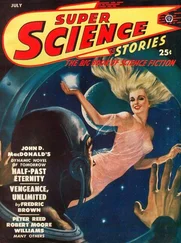The pencil cracked suddenly, with a loud snap. In a quiet tone he called Roy Bedford every name he could think of.
The phone rang and he picked it up. A voice said, “Evan?”
“Speaking. Who is it?”
“Your favorite correspondent in the Chinese armies, chum.”
“Matt!” he yelled. “Where are you? Are you in town? When can you come over?”
“Slow down, boy. It’s ten minutes to noon. We’ll have lunch together in the grill of the Ocean Bay — unless you’ve got other plans. You can find me at the bar.”
“A deal,” he said, hearing Matt’s laugh, then the click of the line.
Standing at the bar of the Ocean Bay, Matthew Otis watched the man mix a martini. Evan Cleveland should be along in a few minutes. He hoped that no one would recognize him before Evan arrived. He wanted to think. The ghosts were thick in the bar. Over there, at the corner table, he and Alicia had sat one night. She had broken a date with Roy Bedford to be with him.
A heavy man with white hair and a yellowed face walked in, stood at the end of the bar and glanced incuriously at Matthew before ordering a drink.
It was a face out of the past. The man with the white hair was John Bernard, coroner.
The coroner’s jury had returned a verdict of accidental death. Bernard had wanted more than that...
“Dr. Green, please describe the injuries suffered by the deceased.”
“The car, driven by Otis here, was a convertible. Both occupants were thrown clear when the car overturned the first time. The deceased was thrown clear in such a way that the handle which fastens the top tore her throat open. She bled to death in seconds, as the carotid artery was completely severed.”
“You have treated Mr. Otis?”
“Yes, I have.”
“Describe his injuries, please.”
“Thigh broken near the hip joint. Pelvis crushed. Bad concussion. He was thrown clear but the car evidently rolled over him on its way down the slope.”
“He sustained no permanent injury?”
“We can’t tell as yet. That cast you see on him can be taken off in another month. He’ll be confined to that chair for some time, however. The concussion has destroyed all memory of the accident.”
“Could alcohol have the same effect?”
“Yes. It would be possible. When the percentage of alcohol in the blood reaches a certain tolerance, memory is often impaired.”
“Thank you, Dr. Green. Call the next witness, please...”
“Your name and occupation?”
“Anthony Dorio. I’m a waiter at the Ocean Club.”
“You served the deceased and Mr. Otis on the night of the accident?”
“Yes, sir.”
“How many drinks did Mr. Otis have?”
“I think it was five.”
“Do you know?”
“Not for sure. It was at least five.”
“Was he drunk when he left there?”
“I wouldn’t say he was drunk. He was happy.”
“Happy? What degree of intoxication does that indicate?”
“Just happy, sir. Laughing, kidding with the girl and tipping me a whole buck when he left...”
“Your name and occupation, sir?”
“Stanley Hoornbeck, highway engineer.”
“You have looked over the site of the fatal accident?”
“I have.”
“Would you please describe it.”
“Halfway between the Ocean Club and Cranesbay, the road goes up over the hills, because there the hills reach to the waterline. The road climbs around two sharp curves, then straightens out. There is a long straight stretch with a ten percent grade, a three-lane road with a sharp drop of about seventy feet off the right side. Since the road is straight at that point, there is no guardrail on the right. The skid marks were still on the road, hadn’t been washed off by the rain. Otis apparently drove toward the edge, then jammed on the brakes too late and went on over...”
“Matthew Otis, sir. Unemployed. I’d just got out of college when—”
“We don’t need explanations. Tell us what you remember of that night.”
“I remember sitting in the booth and talking to — to Alicia. After that, nothing.”
“You were drunk, then?”
“No, sir. I was not drunk. I was hit on the head and—”
“Do you have any idea why you drove off the road?”
“No, sir. I can’t understand it. Dr. Green says it may come back someday and I’ve been trying—”
“Limit yourself to answering the questions, Otis. What was your relationship to the deceased?”
“We were going to be married.”
“Had you quarreled that night?”
“No, sir...”
At last he sat in the wheelchair and looked into the yellowed face as the coroner said:
“Matthew Otis, you have heard the verdict of accidental death. My hands are tied. But my opinion, sir, is that you are a murderer. Your intent makes no difference. This girl died through an act of yours. You have caused her parents, her friends and, I hope, yourself immeasurable sorrow. According to Dr. Green, you will walk again. It would not be too heavy a cross for you to bear, in my estimation, if you never walked again.
“Possibly, you would have lonely hours in which to sit and think of Alicia Crane, great-granddaughter of the founder of this city. You could think long of this girl, brutally killed in the flush of youth. When you killed her, Matthew Otis, you killed her potential children and children’s children.
“It is obvious that if you were not drinking, she would be alive today and you would not be facing me. I do not envy you, Matthew Otis...”
Matthew Otis turned suddenly at the rough grasp on his arm and stared down into the smiling face of Evan Cleveland. They shook hands warmly and exchanged the customary banalities.
It was only after Evan had ordered his drink and they had carried them over to a table that Matt noticed the lines of strain in Evan’s usually cheerful face. Evan said, “I ought to be thrilled sitting right here with a national figger.”
“Lay off!”
“No, in an unpleasant sort of way, I mean it. How long are you staying?”
“Maybe two days. Maybe two weeks.”
“You ever have any trouble from getting smashed up the way you did before you left, Matt?” Direct mention of the accident reminded them both of the death of Alicia, and put constraint on the easy conversation.
“I got around on crutches for over a year. Nowadays I can tell when it’s going to rain, and that’s about all. Stop quizzing me and give me the pitch on the locals. How’s the Furnivall girls?”
“Lush and wealthy, as usual. Pat worked like a fool at the plant after her father died. Things haven’t been going too well there. Susan came home from Wellesley last year. She doesn’t take any interest in the place so long as she can keep her purse full of cash.”
“You married, Evan?”
“No. You?”
“No. How’s Roy Bedford?”
“Obnoxious. In forty he eased into that garage deal as sole owner. By the end of forty he’d put in machine tools and had a contract from the British Purchasing Commission. He plowed the money back in and went way into hock to build a big plant south of town. Aircraft parts. With the dough from that, he has a finger in every pie all up and down the coast and some interest in distant pies. Knitting in the sunny South. A foundry in Buffalo. A tool works in Rochester. I guess he’s still coining dough. He bought the old Crane house on Perkins Street. Alicia’s folks went out to California the year after she died.”
“Did he marry that girl he was running around with when I left?”
“Rose Carney? No. He’s fixed her up with a nice little beach house about three miles out of town. He entertains out there. She makes a good hostess. She’s thinned down and she acts like a lady. She’s kept up with our boy Roy all right.”
Читать дальше
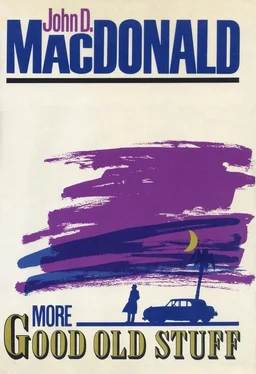
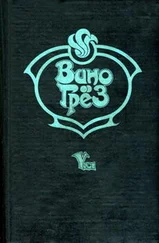
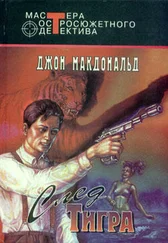
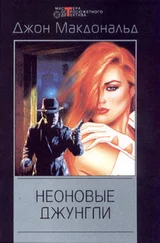
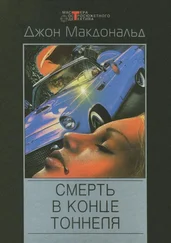
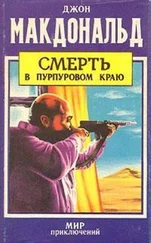



![Джон Макдональд - Wine of the Dreamers [= Planet of the Dreamers]](/books/430039/dzhon-makdonald-wine-of-the-dreamers-planet-of-thumb.webp)

